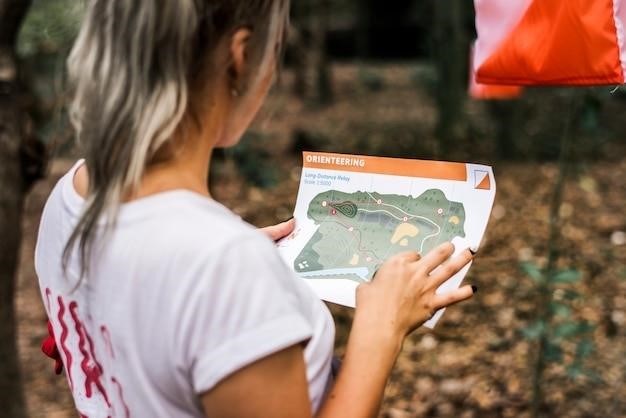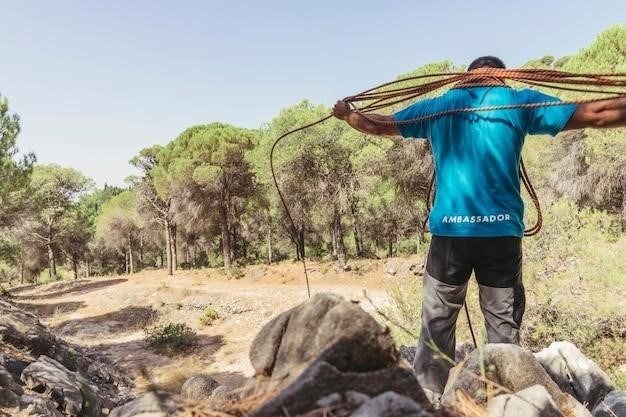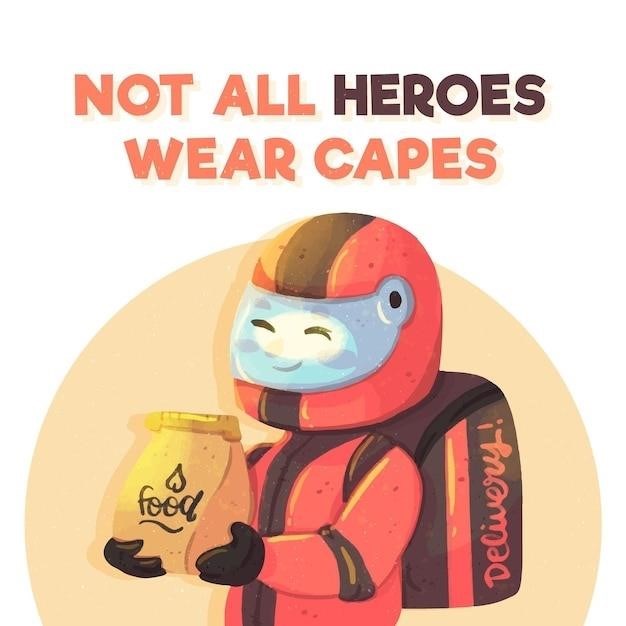OSRS Ironman Herblore Guide⁚ A Comprehensive Overview
This guide details efficient strategies for training Herblore in Old School RuneScape’s Ironman mode. Learn optimal herb acquisition, potion-making techniques, and overcoming unique Ironman challenges to reach level 99.
Why Train Herblore as an Ironman?
In Old School RuneScape’s Ironman mode, Herblore offers crucial advantages despite its demanding nature. High-level potions are essential for combat, significantly boosting your survivability and damage output during challenging encounters. Prayer potions, in particular, are vital for extending your combat duration, especially in prolonged boss fights or difficult Slayer tasks. The self-sufficiency of Ironman mode necessitates mastering Herblore to create these essential consumables. Unlike regular accounts that can readily acquire potions from the Grand Exchange, Ironmen must produce their own, making Herblore a pivotal skill for progression. Furthermore, certain quests and activities require specific potions, highlighting the necessity of a developed Herblore skill for completing the game’s content. While the grind can be lengthy and resource-intensive, the rewards in terms of enhanced combat capabilities and quest completion make Herblore training a worthwhile investment for any dedicated Ironman.
Essential Potions and Their Uses

Several potions are indispensable for Ironman players, emphasizing the importance of Herblore. Prayer potions are paramount, extending prayer duration crucial for sustained combat. Super combat potions offer significant boosts to attack, strength, and defense, greatly enhancing combat effectiveness against formidable opponents. Super restore potions rapidly replenish hitpoints and prayer points, vital for recovery during intense battles. Saradomin brews provide a substantial boost to both prayer and healing, proving invaluable in challenging situations. For ranged combat, ranging potions enhance ranged attack and strength, increasing damage output. Stamina potions are beneficial for extended activities requiring significant movement. Finally, energy potions offer a temporary boost to run energy, useful for traversing long distances. The creation of these potions directly impacts success in various game activities, making Herblore a core skill for Ironman progress. Efficient potion-making is crucial for optimizing resource usage and maximizing the benefits of this vital skill.
Gathering Herblore Ingredients⁚ Farming Strategies
Farming plays a pivotal role in securing essential Herblore ingredients for the Ironman. Daily farming contracts offer a consistent supply of herb and tree seeds, maximizing experience gains and resource acquisition. Prioritize these contracts for a reliable stream of necessary ingredients. Pickpocketing Master Farmers provides a supplementary source of ranarr seeds, vital for creating prayer potions. However, this requires a sufficiently high Thieving level and is most efficient with the hard Ardougne Diary perk or a Thieving cape. Remember that a minimum of 71 Farming is recommended due to loot table adjustments. For a comprehensive approach, explore farming contracts within the Farming Guild for a wider range of herb seeds. Efficient farming techniques, including utilizing ultracompost and magic secateurs, are crucial to maximize herb yields per seed, minimizing time spent cultivating. Always use the best compost available to reduce the risk of disease and ensure a higher minimum yield. Mastering these strategies ensures a steady supply of herbs, directly influencing your Herblore training efficiency and overall progress.
Efficient Herb Acquisition⁚ Monster Drops and Minigames
Diversify your herb acquisition beyond farming by strategically integrating monster drops and minigames into your training regimen. Slayer tasks present a significant opportunity to collect grimy herbs and secondary ingredients alongside combat experience. Focus on tasks yielding high-value herbs, and consider the drop rates of various monsters when selecting your assignments. Prioritize monsters known for frequently dropping herbs, adjusting your Slayer strategy to maximize herb acquisition. For low-level Ironmen, Wintertodt offers an accessible early-game source of basic herbs and supplies. Alternatively, consider targeting Chaos Druids or Flesh Crawlers for their common low-level herb drops. Minigames, such as Managing Miscellania, provide another avenue for acquiring valuable resources. Effectively managing Miscellania can yield a consistent supply of various herbs and seeds, complementing your farming efforts. Remember to consider the time investment required for each minigame and its potential rewards compared to other methods. By combining monster drops and strategic minigame participation with farming, you create a robust and diversified approach to gathering herbs, significantly accelerating your Herblore progression.
Maximizing Herb Yields⁚ Compost and Fertile Soil
To optimize your herb yields and minimize wasted resources, prioritize using the highest-quality compost available on your herb patches. Ultracompost, when combined with magic secateurs, guarantees a minimum yield of six herbs per seed, significantly boosting your overall herb production. While obtaining the materials for ultracompost may require some initial effort, the long-term benefits far outweigh the investment. Remember that NPC gardeners do not protect herb patches from disease, making consistent compost application crucial for maintaining healthy growth. For a more efficient approach, consider utilizing the Fertile Soil spell from the Lunar spellbook, accessible at 83 Magic. This spell eliminates the need for crafting ultracompost, saving you valuable time and resources. The spell’s efficiency in maximizing yield surpasses that of ultracompost, making it a highly recommended addition to your herblore training strategy. While acquiring the necessary tome for ultracompost might be time-consuming, particularly due to the Volcanic Mines Kudos requirement, the long-term gains justify the investment. Strategically utilize teleport methods to swiftly access various herb patches, optimizing your time spent tending to your crops. Combine the use of superior compost with efficient farming techniques to elevate your herb production, maximizing your Herblore training efficiency.
Early-Game Herblore Training⁚ Quests and Initial Supplies
Initiating your Herblore journey as an Ironman requires a strategic approach to acquiring starting materials and experience. Begin by completing the Druidic Ritual quest, which unlocks the Herblore skill and provides a valuable initial experience boost. Following this, focus on quests that offer Herblore experience rewards. Quests like Jungle Potion and Recruitment Drive contribute significantly to your early-game progress, providing substantial experience points that accelerate your leveling process. These early quests, when combined, can propel your Herblore skill from level 1 to a notable level, allowing you to craft essential potions early on. For initial supplies, consider Wintertodt as a viable source of low-level herbs and ingredients. This activity provides a consistent supply of materials while also offering valuable combat experience. Alternatively, engaging in Slayer tasks against creatures such as chaos druids or flesh crawlers can yield common, low-level herbs. This method organically integrates Herblore training with your Slayer progression, maximizing efficiency in your early-game development. Remember that focusing on quests that offer Herblore experience will help you level up faster and gain access to additional resources. Prioritize these quests to lay a solid foundation for your Herblore skill and efficient progression throughout the game.
Leveling Up⁚ Cleaning Herbs vs. Potion Making
Once you’ve completed essential quests and accumulated initial supplies, the choice between cleaning herbs and making potions for leveling becomes crucial. While cleaning herbs provides a steady stream of Herblore experience, it’s generally less efficient than potion making in the long run. Potion making not only grants Herblore experience but also yields valuable potions crucial for your Ironman journey. These potions significantly enhance your combat capabilities and overall survival, making potion making a more strategic approach. Consider the resources available to you when making your decision. If you have an abundance of herbs but lack secondary ingredients, cleaning herbs might be a viable temporary option. However, prioritize acquiring the necessary secondary ingredients to transition to potion making as soon as possible. This transition maximizes both your Herblore experience gains and provides you with essential supplies for your Ironman progression. Remember that the type of potions you create will influence your XP gains, so consider crafting potions that provide a good balance of experience and utility. Efficiently managing your inventory and using the appropriate methods will significantly impact your overall leveling speed and your ability to succeed in Old School RuneScape’s challenging Ironman mode. The long-term benefits of potion making outweigh the initial effort required to gather the necessary secondary ingredients.
Advanced Herblore Training Methods
As you progress beyond the initial stages of Herblore training, several advanced methods can significantly accelerate your experience gains. One effective strategy involves focusing on high-level potions, such as Super Combat or Super Strength potions. These potions require more complex ingredients and yield considerably more experience per potion created. However, acquiring the necessary ingredients may require more effort and time investment. Another effective method involves utilizing efficient farming techniques to maximize your herb yield. Employing the Fertile Soil spell from the Lunar spellbook, combined with ultracompost, guarantees maximum herb yields per seed. This reduces the overall time required for herb gathering, allowing you to focus on potion making. Furthermore, consider utilizing experience-boosting methods such as experience lamps and books of knowledge. These items provide substantial experience boosts and are highly valuable for efficiently leveling your Herblore skill. Prioritize using these boosts whenever possible, as they can significantly reduce the overall time required to reach level 99. Remember to strategize your training based on the resources you have available. Efficiently utilizing all available resources and experience boosts will help you reach your Herblore goals efficiently. Always maintain a balance between acquiring ingredients and potion creation to optimize your training progress. The combination of efficient farming, high-level potion making, and strategic use of experience boosts forms the foundation of advanced Herblore training in Old School RuneScape’s Ironman mode.
Essential Quests for Herblore XP
Several quests in Old School RuneScape offer substantial Herblore experience, significantly boosting your early-game progress. Prioritizing these quests is crucial for Ironman players, as they provide a valuable head start without relying solely on resource-intensive methods. “Druidic Ritual” is an excellent starting point, providing a considerable experience boost early on. “Jungle Potion” offers additional experience and valuable ingredients for potion making, accelerating your progress. “Recruitment Drive” provides further Herblore experience, complementing the rewards from previous quests. These three quests combined can propel your Herblore level to a point where you can start crafting more advanced potions. Completing these early-game quests is highly recommended before focusing on more resource-intensive methods of training, such as grinding herbs and making potions. The experience gained from these quests is invaluable for an Ironman player, enabling faster access to more powerful potions for various activities in the game. Remember to plan your quest completion strategically, prioritizing quests that offer significant Herblore experience. This approach ensures efficient use of your time and resources and lays a solid foundation for your long-term Herblore training in Old School RuneScape Ironman mode. By effectively utilizing these quests, Ironman players can significantly improve their efficiency in this challenging skill.
Ironman Mode Restrictions and Considerations
Old School RuneScape’s Ironman mode presents unique challenges for Herblore training, significantly impacting resource acquisition and overall progression. The inability to trade with other players or utilize the Grand Exchange drastically alters the usual training methods; Obtaining necessary ingredients like herbs and secondary components relies heavily on self-sufficiency, requiring active participation in various activities such as farming, monster killing, and minigames. This self-reliance necessitates a long-term strategy, demanding careful planning and resource management. Efficient farming techniques become paramount, optimizing yield and minimizing resource waste. Slayer tasks can provide a significant source of herbs and secondary ingredients, requiring strategic task selection for maximum efficiency. Furthermore, the limited access to resources necessitates a focus on consistent, sustainable methods, rather than quick, high-volume approaches common in regular accounts. The challenge lies in balancing the need for Herblore levels with other skills essential for an Ironman’s overall progression. Careful consideration of time investment versus rewards is crucial. Ironman players must prioritize activities that maximize both Herblore experience and overall account advancement, requiring strategic decision-making and adaptability. Successfully navigating these limitations requires meticulous planning, adaptable strategies, and a commitment to long-term, sustainable resource management.
Hardcore Ironman Restrictions
Hardcore Ironman mode intensifies the challenges of the standard Ironman experience, adding a significant layer of risk to Herblore training. All restrictions from regular Ironman mode apply, meaning no trading with other players or using the Grand Exchange for obtaining materials. However, the defining characteristic of Hardcore Ironman is the single-life aspect; death results in an irreversible downgrade to a standard Ironman account, with all high scores locked. This single-life constraint necessitates an extremely cautious approach to all in-game activities, including Herblore training. Risk assessment becomes paramount, demanding careful consideration of potential dangers in every location where resources are gathered. While the training methods remain similar to standard Ironman, the consequences of failure are far more severe. Every herb run, every Slayer task, every farming cycle carries a significant risk. The pressure to succeed without loss significantly impacts the pace and strategy of Herblore training. Players must prioritize safety over speed, opting for less risky but potentially slower methods. This cautious approach necessitates a thorough understanding of the game’s mechanics and a detailed risk assessment for each activity undertaken. The need for meticulous planning and the high stakes of each action define the unique pressures of Hardcore Ironman Herblore training. Survival, not just progress, becomes the primary objective. The adrenaline rush of high-risk, high-reward strategies is replaced by a constant awareness of potential dangers, and a focus on steady, safe progress.

Hardcore Group Ironman Considerations
Hardcore Group Ironman (HGIM) introduces a collaborative element to the already demanding Hardcore Ironman experience, impacting Herblore training in several key ways. While the core challenges of limited resources and the single-life penalty remain, the collaborative aspect offers new strategies and considerations. Teamwork becomes crucial, allowing for shared resource gathering and risk mitigation. Players can coordinate Slayer tasks, farming runs, and other activities to maximize efficiency and minimize individual risk. This collaborative approach allows for a more diverse range of strategies, potentially accelerating Herblore training. However, the reliance on teammates introduces new complexities. Coordination is essential to avoid conflicts and ensure everyone benefits from shared resources. Communication and trust are paramount, as the success of the entire group hinges on individual actions. The shared risk also necessitates a higher level of collective responsibility. A single player’s death can significantly impact the entire group’s progress, creating additional pressure and demanding a more conservative approach to risky activities. While the potential for faster progression exists, the heightened reliance on teamwork and the shared consequences of failure add a unique dimension to HGIM Herblore training. Careful planning, clear communication, and trust among teammates are vital to success in this challenging and rewarding game mode. The collaborative nature of HGIM necessitates a different strategic approach compared to solo Hardcore Ironman, demanding careful consideration of both individual and group risks.
